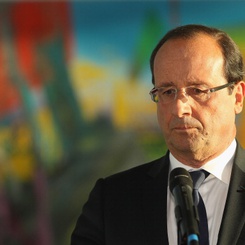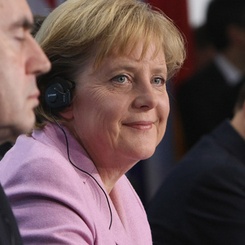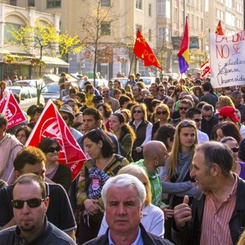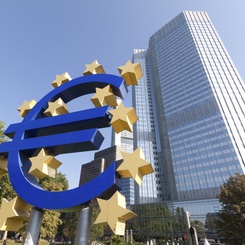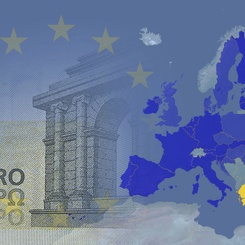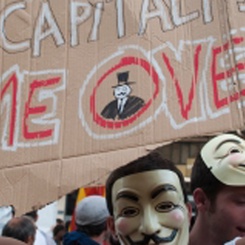With Radu Vranceanu
Among the developed Western Economies, French are among the most critical on capitalism and the ability of the free market to address the challenges of development, innovation and poverty alleviation. Several surveys carried out by Globescan (in partnership with BBC, on 12000 subjects) show us the how significant is the French distrust in markets, in particular when compared with other developed and developing countries. Net ratings reported by Globescan as shown in Figure 1 are well beyond ratings in Germany, a country to which France often compares, even during the more prosperous years before the Great Recession.
Figure 1.
As shown in Figure 2, in 2012, a year when European countries still suffered from the Sovereign bond crisis, only the Spanish had a worse opinion on free markets than the French. The contrast is even starker when compared to answers in Asian and African emerging economies.
Figure 2.
Politicians, unions and a majority of the media share this skeptical view on the ability of the free economy to raise living standards of the French people, to fight poverty and to provide full employment. Be they at the right or left of the political spectrum, politicians’ messages often go against free markets, and particularly against globalization. Calls for the EU to adopt protectionist trade measures in support of domestic firms, to agree on building “national champions”, or depreciate the euro are quite frequent in France.
True, the economic situation of France is relatively bleak for a rich country. Its growth performance in the recent years is rather modest (GDP per habitant grew by 0.5 per year on average between 2000 and 2011, against 0.7 in the Euro Area 17); unemployment rates (at 11% in 2014) stand systematically above the Euro area average, and the labor market performance is further poisoned by high youth and long-term unemployment. End of 2013, France is the only large Euro area country still running a trade deficit. Public finances are in a poor shape. Deficit targets well above 3% are missed year after year; in 2013 the public debt is at 90% of GDP and rising.
This dismal economic performance is for sure a source of psychological discomfort for the population. However, these economic difficulties hardly could explain the distrust in markets. France is far from being the most economic liberal economy in the world. The public sector is huge, with 5.4 millions of civil servants (21% of total employment); the state has a large redistributive action aiming to correct various forms of income inequalities: the marginal income tax is quite high at 45% (for income above 150.000 euro), there is a tax on wealth and a high inheritance tax. Overall, in 2012 total public spending accounts for about 56.6% of the French GDP (the second largest share in Europe, after Denmark). So, in comparison with other countries that have a better economic performance (in particular Germany), France has a stronger state intervention in many segments of the economy. In this context, it seems weird to explain the reluctance to free markets and capitalism by the weak economic performance; to the contrary, one can surmise that the relationship goes the other way round.
A quick and often heard explanation is that French are used to their “strong state” in a tradition that can be traced back to the glorious times of Sully, Richelieu, Colbert, Napoleon to Charles de Gaules. Other sociological explanations, in the line of Max Weber, relate economic performance to catholic work ethic, seemingly more critical against wealth accumulation and in favor of an important redistribution organized by the Government. It is however less clear why, among the catholic countries, France is by far the more hostile to competition and free markets.
Yet economists are not happy with these “cultural” explanations if they are not backed by deeper analyses of the incentives and interactions that can sustain inefficient institutions over a long period.
One challenging and rigorous theory was provided by Gilles Saint-Paul (2009). In his model, people who distrust markets do self-select for the protected teacher profession in primary and secondary education; in this position, they do not get enough information to understand businesses and markets, thus keep on conveying a skeptical discourse about capitalism, thus further “indoctrinating” the next generation in a self-perpetrating anti-capitalist intellectual dynamics. If we put his reasoning one step further, such general education will train many generations of French people in a culture hostile to markets; if this culture becomes dominant, it will contaminate the media and politicians, who will continue on diffusing a skeptical message.
The most dramatic example validating Saint-Paul‘s theory is the teaching of economics at the high school level. While France has produced a number of outstanding academic economists, the general knowledge in the population is low and, more important, is blurred by a systematic teaching of economics jointly with sociology and political science. This does not mean that sociological an political science concepts are not interesting, to the contrary, but mixing them systematically with economics delivers a systematically critical perspective on firms and the economy that reinforce the skepticism of the teachers about the allocative virtues of the market mechanism. Since 2007, the Ministry of Education has been pushing toward a reform of economics in high school education, aimed at bringing it in line with the advances in higher education. In particular, the new official economics curriculum of 2013 is a step in the right direction. However, as long as the three disciplines are taught by the same professor and lead to a common test in the Baccalaureat graduation exam, it is likely that the dominant message will be criticism on markets as delivered by sociology and political science. A clear, convincing and consistent message of economics can be delivered only by professors who believe in their discipline, and have a benevolent approach to firms and markets.
Another serious explanation of the distrust in markets in France can be inferred from a more general analysis as put together by Philippe Aghion, Yann Algan, Pierre Cahuc and Adrei Shleifer (2010). Using a theoretical model and data provided by the World Value Survey, these researchers have clearly identified a relationship between the degree of regulation of that economy and a general measure of “trust in others”. Data show that the stronger the state regulation, the higher is the degree of distrust. Furthermore, in countries where people do not trust each others, there is a strong demand for additional regulation, even if this regulation is provided by an incompetent state. This brings about a self-enforcing inefficient social dynamics, with more regulation and more distrust in others. Without surprise, extreme and dramatic examples of such vicious circle – no markets, no trust and massive cheating – were provided by formerly socialist economies from Eastern Europe and the former Soviet Union.
If we take a closer look to the data, the study shows that among the rich Western countries, France features one of the lowest levels of trust (closer to Eastern European and Latin American countries rather than Nordic or Anglo-Saxon countries), a high demand for state regulation, and a high level regulation. In the light of this analysis, the lack of confidence in the free markets specific to France might be a by-product of the general lack of trust in the others. As Kenneth Arrow pointed out years ago, the market economy can function properly only if people trust each other, and people do trust each other in well-functioning market economies (Arrow, 1974).
Pro-market individuals exist in France and constitute a group of persons who believe that their economic destiny is in their hands. They are both skilled and unskilled people who are willing to work hard, for companies or for themselves as self-employed, because they trust themselves, they trust the others and they have confidence in the Society. They don’t feel the need to be protected against other groups. All they want is that markets - for goods, services and inputs - be open and function well; they want their property rights to be protected by the law and judicial system. They want to be free to take the best actions they deem for themselves while respecting the law and customs. Will these individuals be able to reverse the anti-liberal anti-market rhetoric in France, or will they leave for countries that better recognize their values, it has to be seen. The future of France as an economic power in the 21st Century depends critically on the answer to this question, given that these people are the true vectors of entrepreneurship, innovation and growth.
References
Aghion, Philippe, Algan, Yann, Cahuc, Pierre, and Shleifer, Andrei, 2010. Regulation and distrust, Quarterly Journal of Economics,125 (3), 1015-1049.
Arrow, Kenneth J., 1974. The Limits of Organization, Norton, New York.
Saint-Paul, Gilles, 2010. Endogenous indoctrination: occupational choice, the evolution of beliefs, and the political economy of reform, Economic Journal, 120, 325-353.


